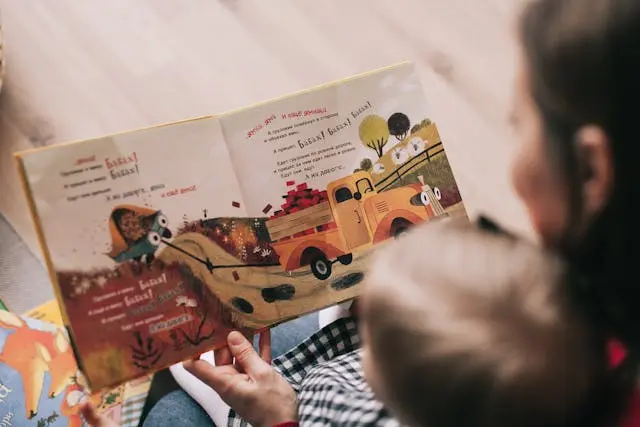Unloved Child Syndrome is a profound psychological phenomenon that casts a lasting shadow on the lives of those who have experienced it. It is the profound impact of growing up feeling unloved as a child. While the concept of childhood neglect is not new, the recognition of its severe emotional consequences has gained increasing attention in recent years. At the heart of this syndrome lies emotional neglect, which forms the very core of its existence.
In this exploration, we embark on a journey to unravel the intricate layers of Unloved Child Syndrome. We will delve into its definition, dissect the prevalence of feeling unloved during one’s formative years, and examine the intimate connection between emotional neglect and the emergence of this syndrome. As we navigate this emotional landscape, we will gain a deeper understanding of the challenges it poses and the pathways toward healing and recovery. The UCS is a multifaceted issue, and by shining a light on it, we hope to offer insight, empathy, and support to those affected and those who seek to understand it better.
The Developmental Impact of Unloved Child Syndrome


It is not just a collection of words; it’s a profound emotional experience that leaves an indelible mark on those who endure it. This emotional rollercoaster takes centre stage in a person’s life, affecting them in ways that ripple through their very being. Let’s dive into the developmental impact of Unloved Child Syndrome and uncover how it shapes lives.
Psychological Consequences
- Low Self-Esteem: Imagine a house with shaky foundations; that’s what low self-esteem feels like. Growing up feeling unloved can chip away at one’s self-worth, leaving them questioning their value and competence.
- Depression and Anxiety: Can plant the seeds of despair and anxiety early on. The constant feeling of being unloved as a child can lead to overwhelming sadness and anxious thoughts that haunt one’s mind.
- Attachment Issues: Healthy emotional bonds are the building blocks of a fulfilling life, but when a child it not loved, it often hinder the development of secure attachments. Trusting others becomes an uphill battle, as the fear of abandonment lingers.
Social and Interpersonal Challenges
- Difficulty in Forming Relationships: Picture a puzzle with missing pieces; that’s the challenge of forming relationships when you’ve grown up feeling unloved. Trusting others and allowing them into your heart becomes a daunting task.
- Trust Issues: When one is unloved as a child, it fosters a sense of mistrust in the world. Every smile seems deceptive, every gesture suspect. Trusting others can feel like navigating a minefield.
- Isolation and Loneliness: The emotional isolation stemming from feeling unloved can be painfully lonely. It’s like being on the outside looking in, watching others enjoy the warmth of connection while feeling trapped in a cold, lonely space.
Understanding the developmental impact of being unloved is the first step toward healing. By shedding light on these psychological and social challenges, we aim to provide insight and empathy and to pave the way for those affected to embark on their journey of recovery and self-discovery. Remember, the human spirit has an incredible capacity for resilience and growth, even in the face of such profound emotional challenges.
Recognizing the Signs: Unmasking Unloved Child Syndrome


Unloved Child Syndrome, born from the painful experience of feeling unloved as a child and often rooted in emotional neglect, can remain hidden beneath a facade of strength and resilience. However, beneath the surface, there are telltale signs that reveal its presence. Let’s explore these signs, offering a glimpse into the inner turmoil of those affected.
Behavioural Indicators
- Seeking Validation and Attention: People who felt unloved as children often seek external validation to fill the void left by emotional neglect. They may crave attention and approval from others, hoping it will compensate for the love they never received.
- Self-Sabotage: Self-sabotage is like an invisible hand pulling them away from success and happiness. Deep-seated feelings of unworthiness can lead to behaviors that undermine their own achievements as if they believe they don’t deserve success or happiness.
- Perfectionism: The relentless pursuit of perfection is a coping mechanism for many who experienced emotional neglect. They may believe that if they can be perfect in every way, they’ll finally be deserving of love and acceptance.
Emotional Symptoms
- Intense Loneliness: Feeling unloved as a child can lead to a profound sense of loneliness, even in the company of others. It’s as if an emotional chasm exists within, separating them from the world, and no amount of external interaction can bridge that gap.
- Emotional Numbness: Emotional neglect can lead to a numbing of emotions. Over time, they may find it increasingly challenging to connect with their own feelings or to understand what they truly want and need.
- Deep-Seated Resentment: Unresolved feelings of being emotionally neglected can fester into resentment. They may harbor bitterness toward their caregivers or others whom they perceive as having failed them during their formative years.
Recognizing these signs is not only crucial for understanding and addressing the Syndrome but also for identifying negative parenting patterns. It serves as a stark reminder that beneath the facade of what may appear as a well-adjusted individual, there often exists a complex web of emotions and coping mechanisms, deeply rooted in their past experiences. By acknowledging these signs, we not only cultivate empathy but also shed light on the importance of recognizing and rectifying negative parenting behaviours.
The Role of Emotional Neglect: Unmasking Unloved Child Syndrome
Emotional neglect is the silent, often unrecognized culprit that plays a pivotal role in the development of Unloved Child Syndrome. In this section, we unravel the significance of emotional neglect, particularly in the context of emotionally unavailable parents.
Understanding “Emotionally Neglected”
Emotional neglect is a subtle, yet impactful form of mistreatment, where caregivers, often unintentionally, fail to provide the emotional nurturing and support a child needs. Emotionally neglected parents may be physically present but emotionally distant, leaving their children yearning for the love and connection that are vital for healthy development.
How Emotional Neglect Contributes to Unloved Child Syndrome
Emotional neglect lays the foundation for being unloved and affected as a child in several ways. It leaves children feeling unseen and unheard, fostering a sense of unworthiness and abandonment. Without emotional validation and support, they learn to silence their own emotions, leading to emotional numbness. The absence of a secure emotional bond can create attachment issues, making it challenging for them to form healthy relationships later in life. In essence, emotional neglect is the breeding ground for the complex emotional landscape that characterizes UCS.
Differentiating Between Emotional Neglect and Other Forms of Abuse
It’s essential to differentiate emotional neglect from other forms of abuse. While physical and verbal abuse are overt acts of commission, emotional neglect is often an act of omission—an absence of emotional nurturing rather than an active infliction of harm. This subtlety can make it challenging to recognize and address. Understanding this distinction is crucial for both those who have experienced emotional neglect and those seeking to support them.
By acknowledging the role of emotional neglect in the development of love where needed and understanding the unique challenges it poses on a child, we take a significant step towards breaking the cycle. It underscores the importance of nurturing emotional bonds and providing the love and support that every child needs to thrive emotionally and psychologically.
18 Ways to Heal from Being an Unloved Child


1. Nurture your inner child.
Your inner child is the part of you that is still hurting from your childhood experiences. It is important to nurture your inner child by giving it the love and support that it needs. You can do this by talking to your inner child in a kind and compassionate way, doing things that you enjoy, and setting healthy boundaries.
Example: You might write a letter to your inner child telling it how much you love it and how sorry you are for the pain it has experienced. You might also start a journal to write down your thoughts and feelings, or you might find a therapist who specializes in working with childhood trauma.
2. Understand your parents.
It is important to understand why your parents were unable to give you the love and support that you needed. This does not mean that you have to condone their behaviour, but it can help you to forgive them and to move on from your past.
Example: You might talk to a therapist or counsellor about your parents’ childhood experiences and how they may have affected their ability to parent you. You might also read books or articles about childhood trauma and parenting.
3. Validate your pain.
It is important to validate your own pain and to acknowledge that what happened to you was wrong. Don’t try to minimize your experiences or tell yourself that you are overreacting.
Example: You might say to yourself, “It’s okay to feel angry about what happened to me.” or “I have a right to feel sad about my childhood.” You might also find it helpful to write down your thoughts and feelings about your childhood experiences.
4. Identify your expectations.
It is important to identify the expectations that you have for yourself and for others. These expectations may be based on your childhood experiences, and they may be unrealistic or unhealthy.
Example: You might expect yourself to be perfect all the time, or you might expect others to always love and accept you. It is important to challenge these expectations and to develop more realistic and healthy ones.
5. Try eye movement desensitization and reprocessing (EMDR).
EMDR is a type of therapy that can be helpful for people who have experienced trauma. It involves using eye movements to help the brain process and heal from traumatic experiences.
Example: You might work with a therapist who specializes in EMDR to process your childhood experiences.
6. Practice self-compassion.
Self-compassion is about being kind and understanding towards yourself, especially when you make mistakes. It is important to remember that everyone is imperfect and that you are deserving of love and compassion.
Example: When you make a mistake, you might say to yourself, “Everyone makes mistakes. It’s okay.” or “I’m still learning and growing.” You might also find it helpful to practice mindfulness and meditation to develop a more compassionate relationship with yourself.
7. How to heal your relationships.
Your childhood experiences may have affected your ability to form and maintain healthy relationships. It is important to learn how to build and maintain trust, how to communicate effectively, and how to set healthy boundaries.
Example: You might join a support group for people who have experienced childhood trauma. You might also read books or articles about relationships, or you might work with a therapist who specializes in relationship issues.
8. Assess your current relationship patterns.
It is important to assess your current relationship patterns to see if they are healthy or unhealthy. If you find yourself in unhealthy relationships, it is important to learn how to break free from them.
Example: You might ask yourself if your current relationships are supportive and respectful. You might also ask yourself if you are able to be yourself in your relationships and if you feel comfortable setting boundaries.
9. Clarifying your relationship values may also help.
Clarifying your relationship values can help you to identify the type of relationships that you want to have. Once you know what you are looking for in a relationship, you can start to build relationships that meet your needs.
Example: You might ask yourself what is important to you in a relationship, such as trust, communication, and respect. You might also ask yourself what kind of partner you want to be.
10. Rely on yourself first.
It is important to be able to rely on yourself for your own happiness and well-being. This doesn’t mean that you shouldn’t have relationships with others, but it does mean that you should be able to meet your own needs and to make yourself happy.
Example: You might start by setting aside some time each day for self-care. This could involve doing something you enjoy, such as reading, taking a bath, or going for a walk. You could also start a journal to write down your thoughts and feelings, or you could practice meditation. The goal is to develop a strong relationship with yourself and to learn to rely on yourself for your own happiness.
11. Accept how you feel.
It is important to accept how you feel, even if it is negative. Don’t try to suppress your emotions or to tell yourself that you should be feeling something else.
Example: If you are feeling angry, you might say to yourself, “It’s okay to feel angry about what happened to me.” or “I have a right to feel angry.” You might also find it helpful to express your anger in a healthy way, such as through exercise or journaling.
12. Consider interpersonal therapy.
Interpersonal therapy is a type of therapy that can be helpful for people who have difficulty forming and maintaining healthy relationships. It focuses on helping people to identify and change their unhealthy relationship patterns.
Example: You might work with a therapist who specializes in interpersonal therapy to learn how to communicate more effectively, how to set healthy boundaries, and how to build trust.
13. How to heal your self-image.
Your childhood experiences may have affected your self-image. It is important to learn to accept yourself and to see yourself in a positive light.
Example: You might start by writing down a list of your positive qualities. You might also practice talking to yourself in a kind and compassionate way. You might also find it helpful to work with a therapist who specializes in self-esteem issues.
14. Seek professional help.
If you are struggling to heal on your own, please consider seeking professional help. A therapist can provide you with support and guidance as you work through your healing process.
Example: You might look for a therapist who specializes in childhood trauma or in issues related to self-esteem and relationships. You might also consider joining a support group for people who have experienced childhood trauma.
15. Join a support group.
Talking to other people who have been through similar experiences can be helpful and validating. A support group can provide you with a safe space to share your thoughts and feelings, and to learn from others who are on the same healing journey.
Example: There are many different support groups available for people who have experienced childhood trauma. You can find support groups online or in your local community.
16. Read books and articles about healing from childhood trauma.
There are many resources available that can provide you with information and support as you heal from childhood trauma. Reading books and articles can help you to understand your experiences, to learn coping mechanisms, and to find inspiration.
Example: Some popular books on healing from childhood trauma include “The Body Keeps the Score” by Bessel van der Kolk and “Adult Children of Emotionally Immature Parents” by Lindsay Gibson.
17. Practice mindfulness and meditation.
Mindfulness and meditation can help you to become more aware of your thoughts and feelings, and to develop a more compassionate relationship with yourself. These practices can also help to reduce stress and anxiety.
Example: There are many different types of mindfulness and meditation practices available. You can find guided meditations online or in apps, or you can take a mindfulness class.
18. Take care of yourself physically.
Eating a healthy diet, getting enough sleep, and exercising regularly can all help to improve your mood and overall well-being. It is also important to avoid unhealthy coping mechanisms, such as drug and alcohol abuse.
Example: You might start by making small changes to your diet and lifestyle, such as adding more fruits and vegetables to your diet or getting some exercise every day. You might also find it helpful to talk to a therapist or counsellor about how to develop healthy coping mechanisms.
Nurturing Hope!
In summary, Unloved Child Syndrome’s profound impact on those who grew up feeling unloved as children is clear, it affects self-esteem, relationships, and overall well-being. However, there is hope for healing and transformation. Seeking help and support, whether from therapists or support groups, is an act of courage that can provide guidance and empathy. The journey toward healing involves self-discovery, self-compassion, and ultimately, self-love, leading to healthier relationships, self-acceptance, and breaking the cycle of emotional neglect. Recognizing the impact of childhood emotional neglect empowers individuals to nurture hope, foster healing, and build a brighter, emotionally fulfilling future.
Written by: Maryam
BA Early Childhood Education with Psychology










1 Comment